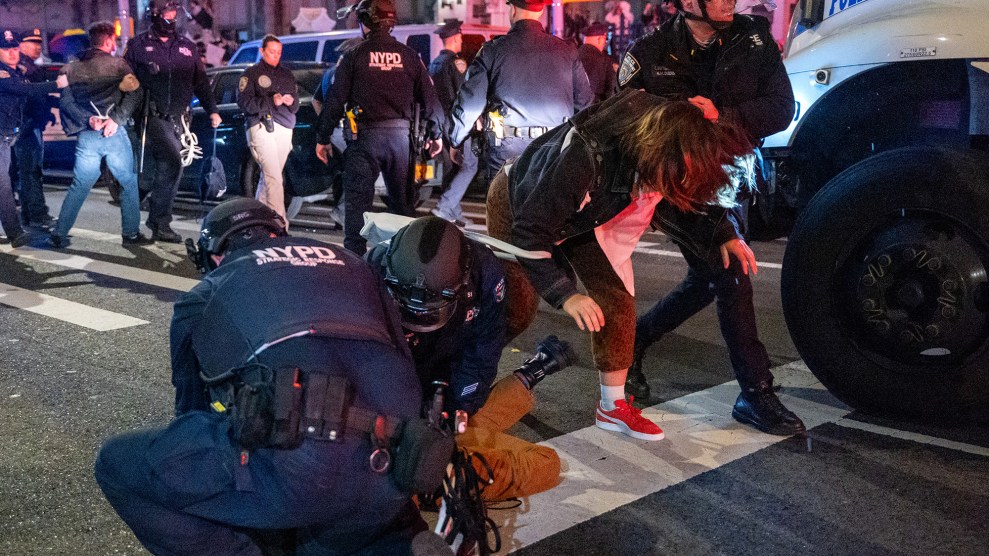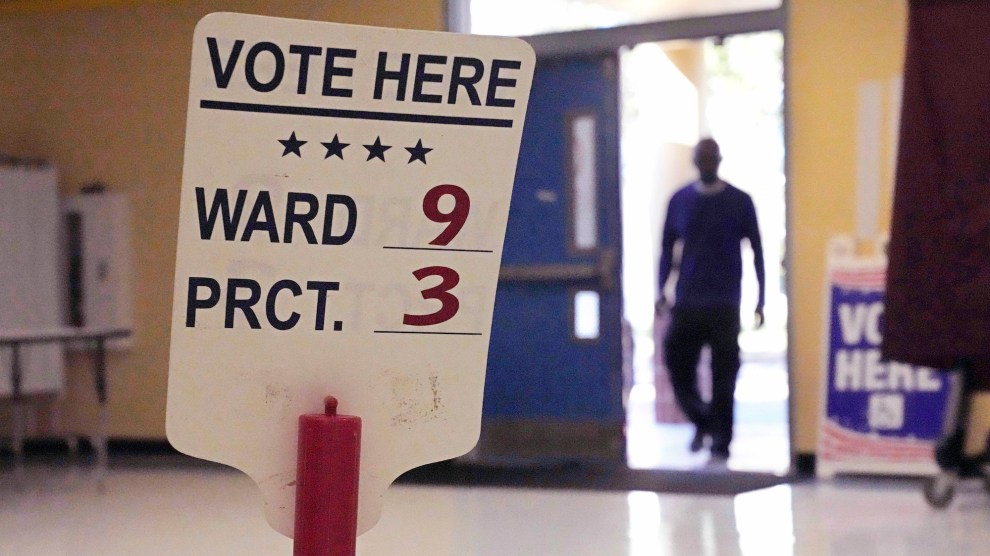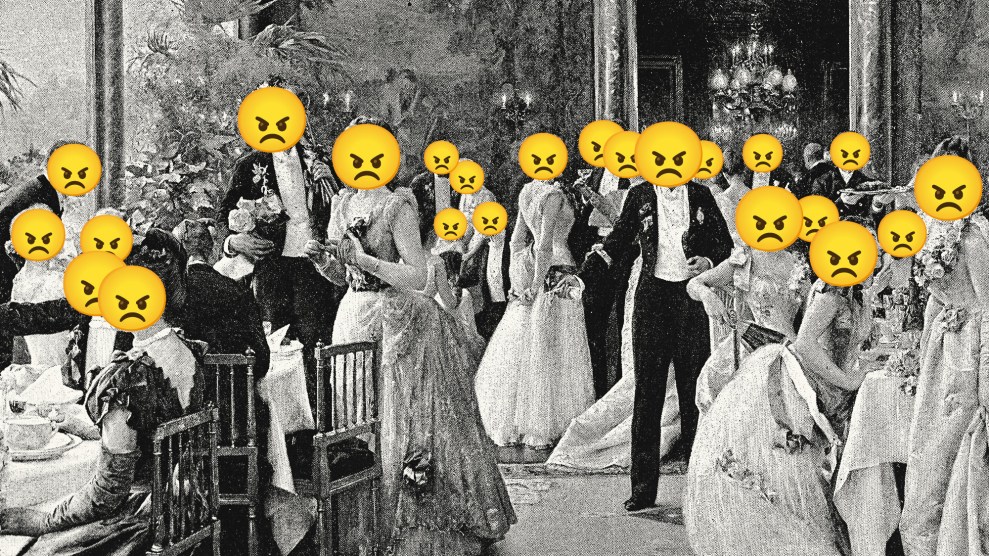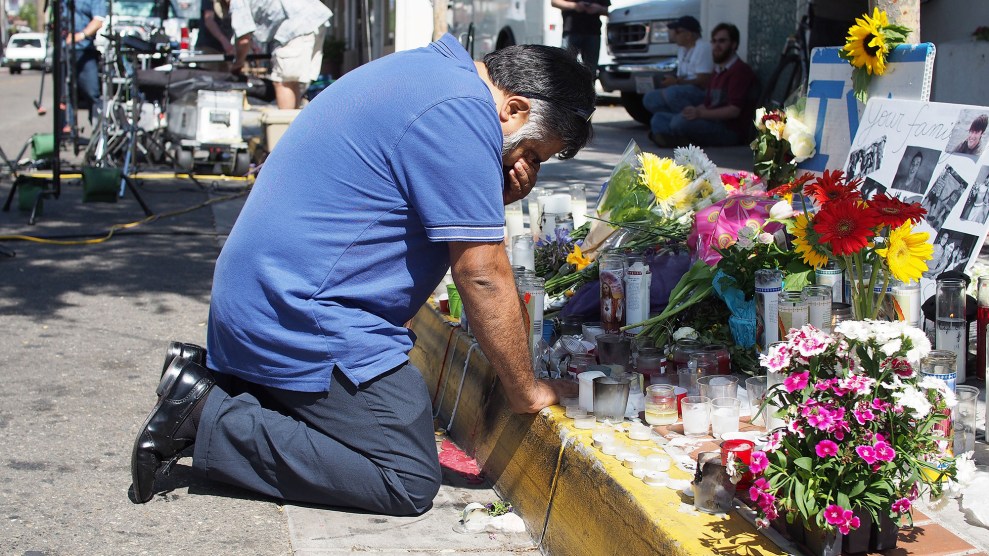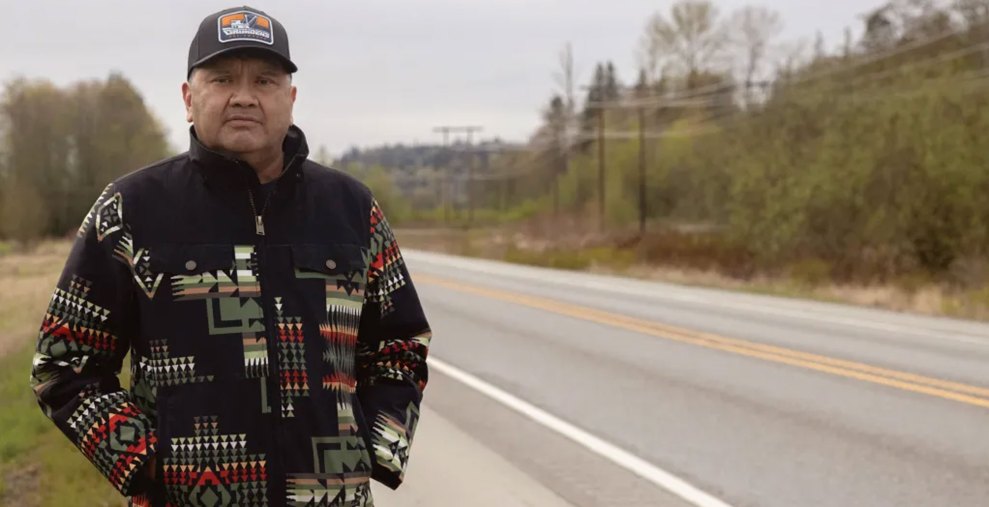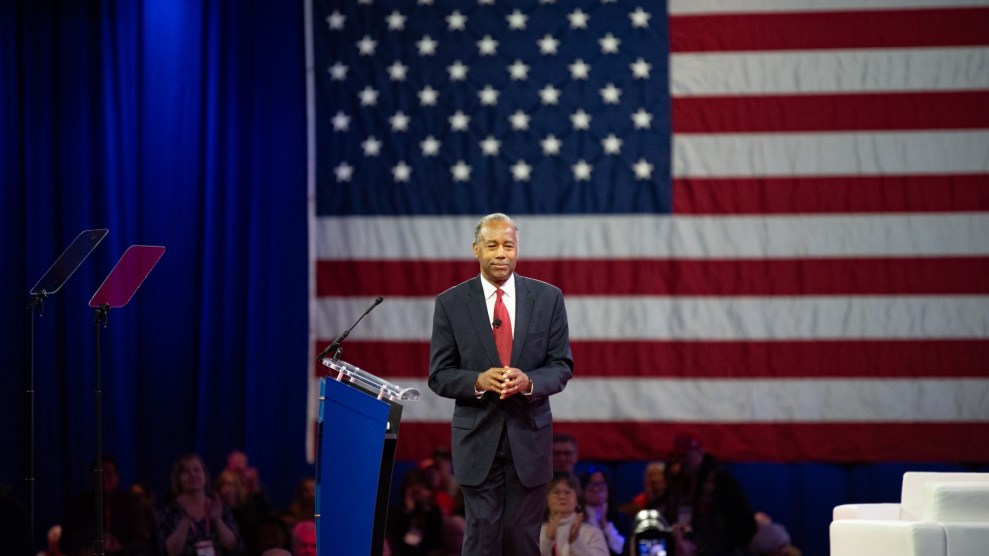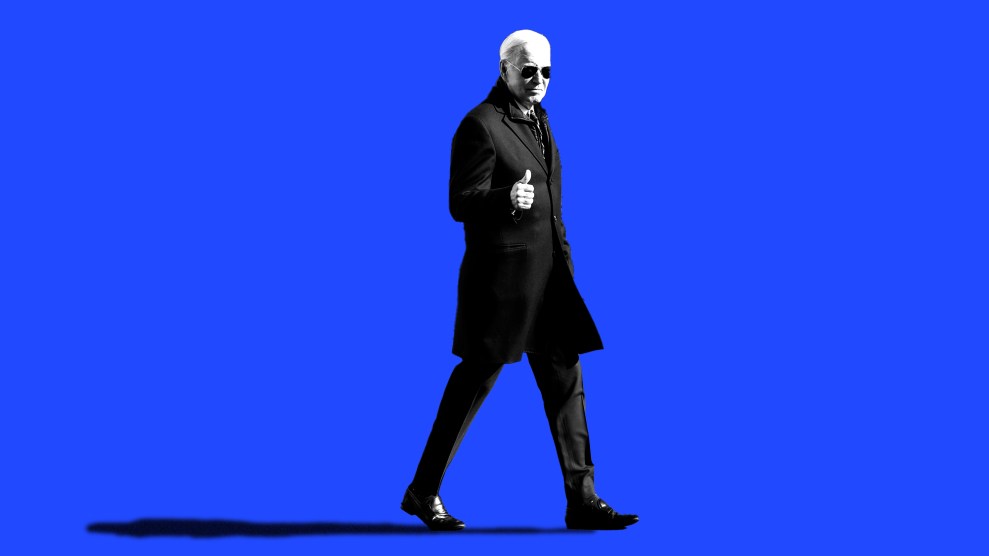Mother Jones: What do you think is the most exciting new use of technology in politics?
Phil de Vellis: I think the use of YouTube and Flash Video is the most exciting. For the first time, campaigns, organizations, and regular citizens can post and distribute video online for nothing. That’s a major hurdle. Internet video has been around for a while, but it’s been very cumbersome. You’ve had to use a whole mess of programs and if you didn’t have the exact plug-in, it wouldn’t work. Now, you’re delivering video via Flash and there are no hosting fees. Ninety-nine percent of Internet users have Flash installed so they can use them.
MJ: And, on the flip side, what do you think is the most overhyped technology being used in politics?
PD: Twitter. It’s your own inner monologue that’s recorded and reported to everyone. I could be wrong. It could really catch on. But I think that people are more interested in using social networks or IM. It’s a real weird hybrid of that sort of stuff. I’ve sat in on seminars where people are talking about Twitter like it’s going to change everything. Not this cycle. It’s not there yet.
MJ: How are campaigns using it? I know Edwards’ campaign jumped right into Twitter.
PD: I don’t think it’s bad that these campaigns are trying out everything under the sun. In some ways, it’s kind of like the space race, where they invented some extra technology that wound its way to creating the VCR and all these other things. They can try out all these new technologies and some will work and some won’t. I think they’re just using it as another way to find people.
MJ: Do you think that open-source politics forces candidates to be more responsive? Do you think it encourages more dialogue?
PD: I definitely think that all of these open-source technologies are just other ways for politicians to hear what people are saying and also to get feedback. Before all this stuff, there were a few guys-guys like Joe Klein, David Broder, the Capital Gang-who could say if a campaign was run well or not. Now you’ve got millions of people essentially doing the same thing. They are analyzing campaigns. So for candidates, talking to David Broder isn’t a make-or-break thing. They can talk to Markos, or they could talk to local bloggers in Iowa. There are still gatekeepers. There are just a lot more of them, and new ones all the time.
MJ: When you created “Hillary 1984,” did you think in advance that there would be this much fallout?
PD: I knew I was playing with fire, but I didn’t think it would reach this level. When I saw presidential candidates commenting on it on TV, it went to a whole new level of scrutiny that I have never witnessed. So, yes, I knew what I was doing. I didn’t realize I would be identified and I didn’t realize people would care as much as they did. I knew it was very provocative. The thing people don’t realize is that the Internet is a really hot medium. That is the kind of thing that breaks through-something that is really up in your face. Usually, you are shoving stuff out there that people could care less about. Did I realize it was going to be such a big deal? No, I didn’t really realize that, obviously.
MJ: At the time, what was your title at Blue State Digital?
PD: I was a strategist. Most of the clients that I worked for were not actively engaged in a campaign but rather in electoral policy.
MJ: So if this is what you were doing for your job, what prompted you to make a video like this in your off time?
PD: It’s one of those things where you have the skills and I just put it to use.
MJ: You weren’t working for the Obama campaign directly?
PD: I was an Internet strategist and they were not one of the clients who I was working with doing Internet strategy.
MJ: I’m sure you are aware of the skepticism surrounding the situation-that people just don’t believe that there was no campaign involvement. You lived with an Obama PR flack.
PD: I’m friends with people on every campaign. Politics is a really small world-it’s really like junior high. The [Obama] campaign was not involved in it at all. As soon as they found out, I left the company. I think Obama’s a great guy, and I think he’s running a great campaign, but that doesn’t make me officially part of the campaign. But am I connected on one of these trees that connects all the great rock bands-like the drummer of Pink Floyd is also in Supertramp. Yeah, there’s some of that. But I have the capability to do that on my own and the ability to get it out there. I’m kind of a utility player. I can do it all. I can also just shut up and watch the fireworks go off and that’s what I did.
MJ: In your response on Huffington Post, you said you wanted to express your feelings about the Democratic primary and also to show that an individual citizen can affect the process. And in light of what’s happened recently with Obama’s MySpace page, how does a campaign harness the power of that citizen without it getting completely out of control?
PD: They can’t-the game really has changed. They can’t exercise the same amount of control over the campaign. During the Dean campaign, nobody ever said, “Oh, look at what your crazy supporter did.” Reporters were interested in the technology and never really read anything people were writing-and they were writing really crazy things. So I would say it’s probably best to encourage supporters to go out there and be advocates and at some point, [candidates] are going to have to distance themselves if it’s not what they intended.

